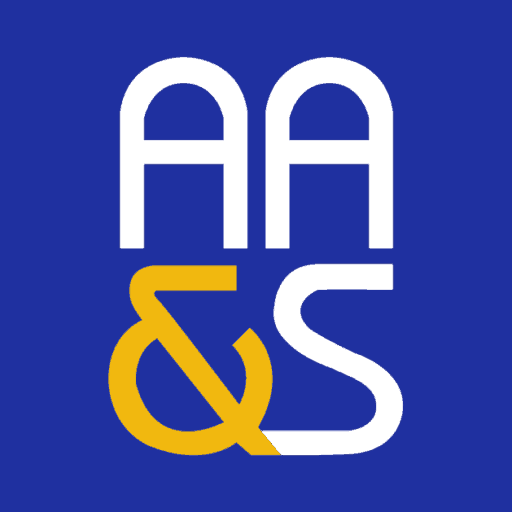What You Need to Know about the Working Tax Grant

The Employment Grant Program (previously named “negative income tax” or “working tax grant”) is intended to encourage participation in the workforce for low income earners, to increase the disposable income of those employed at the lower income brackets and to reduce income inequality.
In April 2017, eligibility for the grant was expanded by Finance Minister Moshe Kahlon. All figures regarding criteria and grant amounts are based on the last published results. Revised figures are expected in July 2017.
Who Is Eligible?
The law applies to any salaried employee or self-employed person whose earned income or whose income from a business or profession in the 2016 tax year met all three of the following criteria:
- You are 23 years of age and you have children, or you are aged 55 or more, including without children.
- At any time in the 2016 tax year, besides a single housing unit, you and/or your spouse, or your child, who is financially dependent on you, separately or together, did not own real estate rights (such as: an apartment, a store, a plot of land etc.) inside or outside Israel, where your share in its ownership exceeds 50%.
-
If one of the two applies to you:
- You have one or two children, or you have no dependents but 55 or older: The result from dividing all your earned income and/or your income from a business and/or from a profession in the 2016 tax year, by your actual number of work months (as a salaried employee or as being self-employed, but not more than 12 months) in that year, was higher than NIS 2,060 and lower than NIS 6,141.
- You have three or more children: The result from dividing all your earned income and/or your income from a business and/or from a profession in the 2016 tax year, by your actual number of work months (as a salaried employee or as being self-employed, but not more than 12 months) in that year, was higher than NIS 2,060 and lower than NIS 6,750.
Note: Individuals must file their own claim to the grant. It is not possible to file a claim for a third person, not even when presenting an identification card of that person and/or a power of attorney and/or any other document testifying to his right to representation. This also applies to husband and wife, who must apply separately.
How to Claim the Grant
To receive the grant, a claim needs to be filed. The grant claim for the 2016 tax year must be filed no later than September 30, 2017. Income tax filings must be up to date prior to filing for the grant.
- A self-employed and/or salaried employee who is required to submit a report to the income tax authorities, or whose spouse is required to submit such a report must have filed the annual report no later than July 31, 2017, or by the due date given in an extension to file.
- A report No. 126/856 has been submitted by the employer for the 2016 tax year no later than May 31, 2017.
Previous recipients of the grant can file claims online (Hebrew only). The grant will be deposited into the account on file with the Tax Authority.
First-time applicants (or applicants who were not approved for a prior grant) must file in person at the Israel Post Office, providing both their ID card and either a canceled check or official letter from the bank stating there is an account in their name to receive the grant. You will be asked to provide details on:
- Number of employers (including housekeeping employers, excluding pension) you and/or your spouse have had during the 2016 tax year.
- Whether you were self-employed during the 2016 tax year.
- Mailing address.
- The details of the bank account to which the grant will be deposited.
A form will be generated with the relevant information. The upper section is yours and confirms you filed for the grant. You must retain this claim form and claim number to receive information about the status of your grant claim.
How Much is the Grant?
The grant, per month of eligibility, is based on your average monthly earnings and can reach as high as NIS 720. The data in the tables below does not apply to workers with disabilities.
| Average Monthly Salary (NIS) | Monthly Grant Amount (NIS) | |
| Single parent (father or mother) supporting 1-2 children | Father with 1-2 children OR man/woman age 55 or older with no dependents | |
| Up to 2,059 | 0 | 0 |
| 2,060-2,499 | 120 | 80 |
| 2,500-2,999 | 226 | 151 |
| 3,000-3,576 | 347 | 231 |
| 3,597-4,790 | 495 | 330 |
| 4,791-5,000 | 423 | 282 |
| 5,001-5,499 | 250 | 167 |
| 5,500-6,141 | 30 | 20 |
| 6,142 or More | 0 | 0 |
| Average Monthly Salary (NIS) | Monthly Grant Amount (NIS) | |
| Single parent (father or mother) supporting 3+ children | Father with 3+ children | |
| Up to 2,059 | 0 | 0 |
| 2,060-2,499 | 180 | 120 |
| 2,500-2,999 | 335 | 223 |
| 3,000-3,589 | 511 | 341 |
| 3,590-4,790 | 720 | 480 |
| 4,791-5,000 | 646 | 431 |
| 5,001-5,500 | 470 | 313 |
| 5,501-6,750 | 30 | 20 |
| 6,751 or More | 0 | 0 |
Grant amounts can be reduced due to a spouse’s income or additional income that does not qualify as earned income. Examples of additional income include pension payments and payments for injury, disability or maternity leave paid by the National Insurance Institute (Bituach Leumi).
Receiving Payment
The Tax Authority will determine your eligibility for a grant within 90 days from the later of the claim filing date or July 15, 2017.
For salaried employees:
- For claims filed before March 31, 2017, the grant will be paid in four equal installments on the following dates: July 15, 2017, October 15, 2017, January 15, 2018 and April 15, 2018.
- If a claim has been filed before June 30, 2017, the grant will be paid in three equal installments on the following dates: October 15, 2017, January 15, 2018 and April 15, 2018.
- If a claim has been filed before September 30, 2017, the grant will be paid in two equal installments on the following dates: January 15, 2018 and April 15, 2018.









